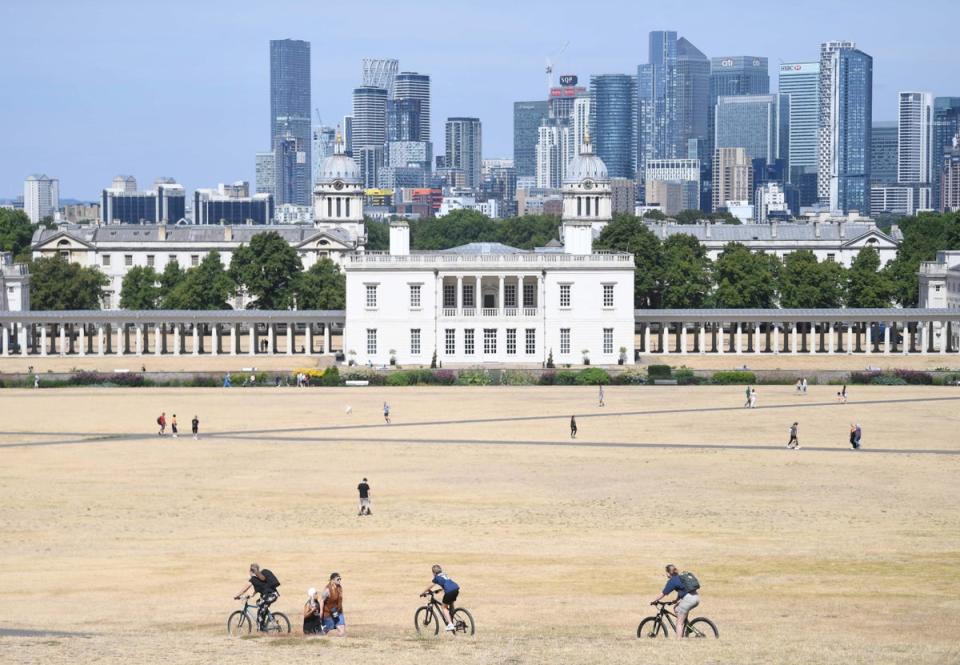Met Office gives verdict on reports of 35C UK heatwave caused by ‘African plume’

The Met Office has given its verdict on reports claiming that “African plumes” could bring multiple heatwaves to the UK this summer with temperatures in excess of 35C.
In a widely reported forecast, Exacta Weather said hot air masses are likely to sweep across Europe between June and September that could repeatedly push the mercury into the thirties in the UK.
Met Office meteorologist Honor Criswick told The Independent that such a scenario would be “unprecedented, but not impossible”.
“We had a similar set-up last summer, though there were additional factors at play, with a high to the east of the UK bringing hot air up from the south/southeast,” the forecaster said.
Asked about the predictions of a scorching summer, Ms Criswick said that, “as always with a longer-range forecast, there is always some uncertainty”.
But she said that there is “a greater than normal chance” of heatwaves in the UK this summer, which is “consistent with our warming climate”.
“Outlook forecasts are for the average conditions over the UK as a whole, for the period as a whole, so we can expect regional variations,” Ms Criswick said.
“So far for May, there is a higher than normal chance of warmer temperatures, however near average or cool conditions remain possible. Looking ahead into June and July, the chance of it being hot is higher than normal however near average temperatures remains the most likely outcome.

“There is also a greater than normal chance of impacts from hot weather such as heatwaves. The increased chance of warm conditions through the period is consistent with our warming climate. Whilst this doesn’t necessarily mean a heatwave will occur, it does increase the likelihood of this compared to normal.”
The series of heatwaves last summer brought England its joint-hottest summer since records began in 1884, with mean temperatures on a par with the 2018 record, as the mercury broke the 40C barrier for the first time ever.
The conditions saw the Met Office issue its first-ever red warning for extreme heat and the government declare a national heatwave emergency for the first time.
Calling the 40C temperatures “virtually impossible without climate change”, the Met Office’s chief scientist Professor Stephen Belcher said last year that “I wasn’t expecting to see this in my career”.

“If we continue under a high emissions scenario we could see conditions like this every three years,” Prof Belcher said. “We’re already committed to a level of warming and these extremes will get more extreme in future.”
The human cost of the hotter weather already appears stark, with more than 3,000 heat-related deaths recorded in England and Wales last summer, including an estimated 1,000 fatalities during the three record-breaking days in June, according to snap analysis.
Richard Millar, head of adaptation at the government’s advisory Climate Change Committee, told The Independent that, while around 2,000 people typically die of heat-related injury and illness each year in the UK, this could rise to 7,000 by mid-century if ministers fail to urgently act to adapt to climate change.
According to the Met Office, the Sahara Desert is among the main sources of air masses which affect the UK, being one of the Earth’s “source regions” where large masses of air can stagnate and gradually gain heat from the ground underneath.

 Yahoo News
Yahoo News 
